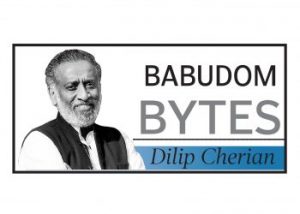All Smoke, No Fire

With just days to go before acting DGP Prashant Kumar hangs up his boots on May 31, the race to lead Uttar Pradesh’s police force is heating up—but so far, all smoke, no fire. The state government hasn’t yet sent a shortlist to the UPSC, nor has it kickstarted the process under its newly minted DGP appointment rules, leaving the top job dangling in a curious mix of suspense and speculation.
These new rules—brought in with fanfare as a way to cut through the bureaucratic red tape—introduce a state-led selection committee headed by a retired High Court judge, but observers say it’s just a slick way to reduce the Centre’s role and retain tighter political control over who gets the badge.
The field is wide open, with a few familiar names doing the rounds in the power corridors and grapevine chats alike. The most talked-about is Tilottama Verma, a 1990-batch officer and DG (Training), who, if chosen, would become the first woman DGP of India’s most populous state—a move both symbolic and long overdue. Her CBI credentials are solid, her seniority isn’t in doubt, and the buzz around her has only grown since her husband, senior IPS officer Ashish Gupta, took voluntary retirement last month, possibly clearing the decks for her elevation.
Then there’s Daljit Singh Chaudhary, currently at the BSF, with boots-on-ground experience in central forces; Alok Sharma, guarding the highest of the high as SPG chief; and Rajiv Krishna, steering the state’s police recruitment board with a reputation for being calm and competent. But none of this matters if the government doesn’t act—and soon.
Because while the rules have changed, the old concerns remain: will the appointment be based on merit, integrity, and experience, or will political convenience win the day yet again? A historic appointment is within reach, but the longer the delay, the more it starts to look like just another backroom chess match, where strategy matters more than service.
From trees to trouble
In Telangana, weekends are not just for lazy brunches but also great for bulldozing forests when you think no one’s looking. But the Supreme Court was definitely watching—and it isn’t amused.
In a blistering hearing, the Court tore into the Telangana government over the felling of hundreds of trees in the Kancha Gachibowli forest, right next to Hyderabad Central University. The timing? A long weekend when the SC’s forest bench was conveniently unavailable. The message? Clear and scathing: either restore the forest in two months, or the state Chief Secretary should start prepping for a stint behind bars.
Chief Justice of India B.R. Gavai didn’t mince words, warning the state government that it should be prepared to face contempt. He further called the operation “preplanned” and “deliberate.” The state’s defence—that the land wasn’t technically forest and that only “exempted” trees were felled—was laughed out of court. No EC, no paperwork, and now, possibly, no freedom.
A report from the Court-appointed Central Empowered Committee confirms what many feared: over 100 acres were razed without approvals. The land is home to wildlife corridors and natural water bodies. Yet someone thought it was ripe for an IT park.
The SC has now drawn a line. This is about more than a patch of green—it’s about state impunity and the hope that no one’s watching. The Court has made it clear: weekends won’t save you from consequences.
Online trolling: A chilling new normal
In an era where outrage goes viral in seconds, the internet has become a coliseum, and public servants’ families are easy prey.
Foreign Secretary Vikram Misri recently found himself in the eye of such a storm. Not for a diplomatic misstep, but for merely doing his job. The real target? His daughter, a private citizen, was mercilessly doxxed and branded “anti-national” for studying abroad. Her photos were circulated like evidence in a trial she never signed up for.
This wasn’t anonymous trolling from the digital abyss. It was vicious, orchestrated, and met with deafening silence from the government, including Misri’s own ministry.
The abuse didn’t stop there. A few weeks ago, Lieutenant Vinay Narwal, a newlywed naval officer, was killed in the Pahalgam terror attack. His wife, Himanshi, in an extraordinary display of grace, appealed against communalising her husband’s death. For that, she too was savaged online—her grief trampled by political hate.
Civil service bodies like the Association of Diplomats and the IAS and IPS associations, as well as prominent citizens, spoke out in support of the foreign secretary and slammed the vicious online attack. So did political leaders like Akhilesh Yadav, who rightly questioned whether the Centre’s silence amounts to tacit approval. Even the Supreme Court described social media trolling as “atrocious.”
This isn’t free speech—it’s the public lynching of private grief. If we can’t draw a line here, the question isn’t whether we’ve lost our moral compass. It’s whether we even want one anymore.
By Dilip Cherian
News